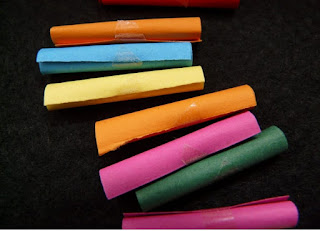I love logic puzzles! I love feeling like a sleuth, solving mysteries, and spotting the little details that others might miss. I think it started with Encyclopedia Brown books when I was in elementary school.
What are the benefits of doing logic puzzles? So many executive function skills!
- storing and manipulating information
- remembering details
- analyzing
- focusing and concentrating
- persisting in a task
- deductive reasoning
- filtering information
- paying attention to details
As a middle school teacher, I've tried with varying degrees of success to get my students interested in logic puzzles. I have found that if I just pass out the logic puzzles, the success rate is pretty low. So many of them don't know where to start or what to do.
The three types of logic puzzles that I use most frequently are grid logic puzzles, cryptograms, and word sudokus.
For the best results, I project the puzzle and go step by step. I read each clue out loud and narrate what I'm thinking and why I'm checking boxes or putting in circles. Usually after 2 or 3 clues, students start to pick it up and want to continue on their own.
Not sure where to start? You can try out this Free Back to School Logic Puzzle, and go through it with your students or watch this YouTube video : Back to School Logic Puzzle on how to solve it.
Solving cryptograms can also be daunting at first, but there's no need to be overwhelmed! Tell the students to first fill in the given letters. Next, they look for words they know that fit the theme. When they solve one word, they have more letters to put into the key. I tell them it is very similar to playing Wheel of Fortune or hang-man.
I have a video showing how to start solving a Halloween Cryptogram. After watching the video, your students should be able to complete it on their own. You can get the Halloween Logic Puzzles here.
Logic puzzles are my best sellers in my Teachers Pay Teachers store. The feedback that I receive is often that logic puzzles are great time-fillers, are used before holidays, and are used with substitutes. Teachers also comment that at first their students struggled or didn't enjoy the puzzles, but then grew to love them. Teachers have used the puzzles for team building and competitions as well!
It's definitely worth the time it takes to introduce students to how to complete logic puzzles! I have 8 free logic puzzle sets in my store, with 11 total puzzles, and I'd love you to try them out and get your kids hooked!















